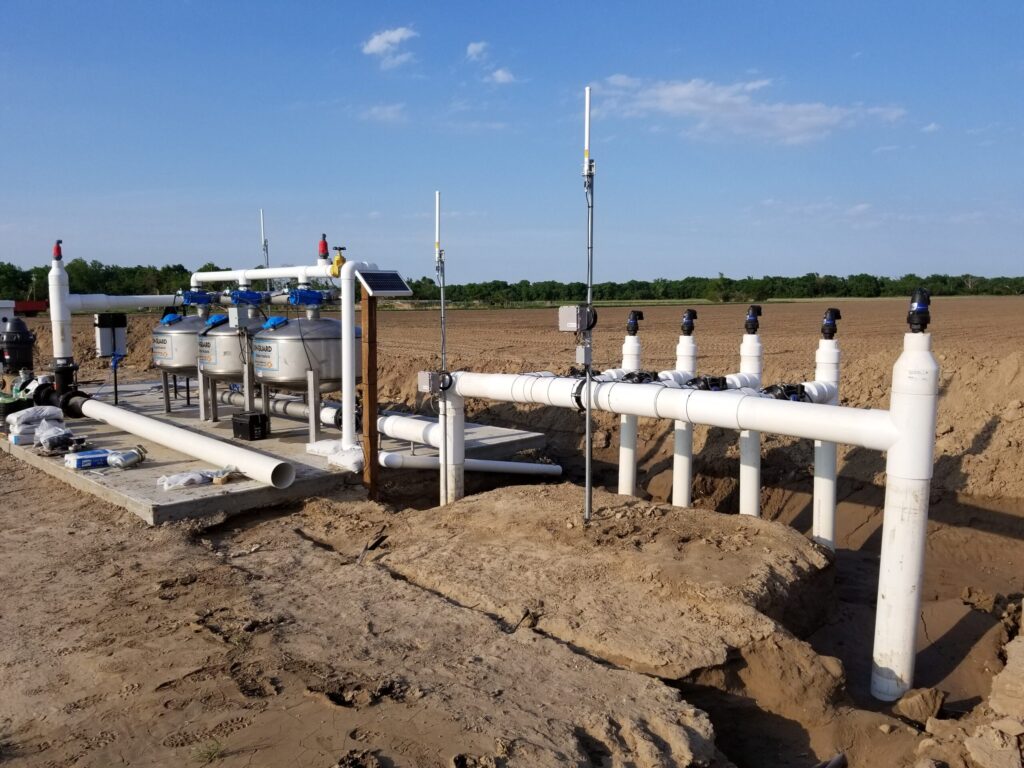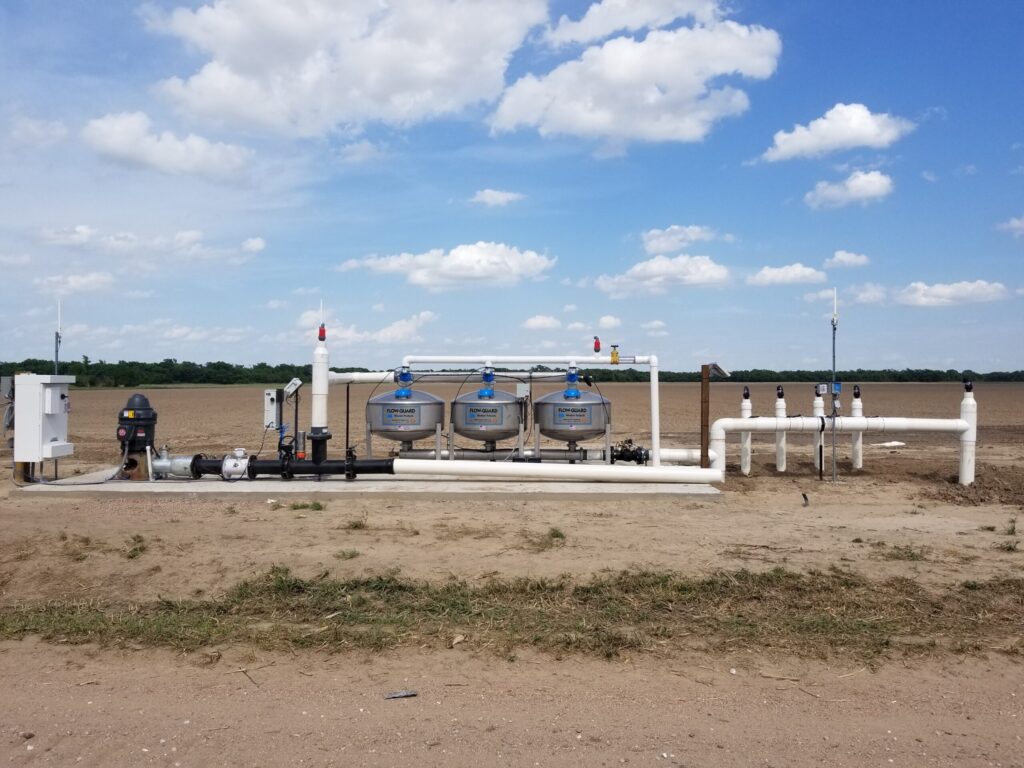Clearing the Waters in Agriculture: Innovative Agriculture Water Filtration Systems
Agriculture is the lifeblood of countless communities around the world, and its sustainability heavily depends on the availability and quality of water. But as population growth and industrialization strain our water resources, innovative solutions in agriculture water filtration systems have become imperative for the industry’s future. This blog post explores cutting-edge water filtration systems making waves in agriculture and why farmers should set sail on this vital sea of technology.
Current Challenges in Agricultural Water Management
Agricultural water management is currently facing a myriad of intricate challenges that pose significant threats to both efficiency and sustainability. Among the primary challenges are issues such as water scarcity, pollution from pesticides and fertilizers, and the inefficient utilization of available resources. As the global demand for food continues to escalate alongside population growth, the agriculture sector finds itself in a challenging position to enhance productivity while conserving water resources. Traditional agricultural methods often result in excessive water usage and runoff, leading to environmental degradation and the loss of valuable water through evaporation and soil infiltration.
Moreover, the pollution stemming from pesticides, fertilizers, and other agricultural runoff further exacerbates the situation by contaminating water supplies. This critical issue demands immediate attention and effective solutions to safeguard water quality and ecosystem health. In light of these complexities, there is an urgent call to embrace innovative water management strategies to ensure a sustainable future for agriculture and preserve our natural resources for generations to come.

Innovative Water Filtration Systems
In recent years, advancements in technology have led to the development of innovative water filtration systems designed specifically for agricultural use. These systems employ cutting-edge techniques to reduce waste, conserve water, and ensure the purity of water used in farming processes. One such technology is the Reverse Osmosis (RO) system, which utilizes a semipermeable membrane to remove impurities, chemicals, and unwanted materials from water, making it safer for irrigation and reducing the reliance on chemical treatments.
Another noteworthy innovation is the use of biofilters, which incorporate natural materials and beneficial microorganisms to remove contaminants and nutrients from runoff water before it reenters the ecosystem. This not only protects local waterways but also turns potential pollutants into beneficial byproducts that can enhance soil quality.
Furthermore, Smart Water Management Systems are being integrated into agricultural practices, employing sensors and IoT (Internet of Things) technology to monitor soil moisture levels and water quality in real-time. This allows for precise irrigation, ensuring that crops receive the exact amount of water they need, minimizing waste and enhancing water efficiency. Together, these innovative water filtration systems represent a significant leap forward in sustainable agricultural practices, offering pathways to overcome some of the most pressing water management challenges faced by the sector today.
Benefits of Implementing Advanced Water Filtration Systems
The adoption of advanced water filtration systems in agriculture ushers in a plethora of benefits that extend beyond merely conserving water. Firstly, these systems contribute to significantly increasing the efficiency of water use. By providing clean, filtered water that meets the specific needs of crops, farmers can enhance crop yields and health, leading to higher productivity and profitability. This improved water quality also reduces the risk of crop diseases and promotes healthier agricultural products for consumers.
Secondly, implementing state-of-the-art water filtration technologies helps mitigate environmental impacts. By filtering out pollutants and reducing runoff, these systems protect local waterways from agricultural pollutants, thus preserving biodiversity and ecosystem health. This is crucial for maintaining the balance within local habitats and ensuring the long-term sustainability of water resources.
Furthermore, advanced filtration systems offer financial advantages. Although the initial investment might seem substantial, the long-term savings in water costs and the increased efficiency of water use can result in considerable economic benefits. Reduced water wastage means lower water bills, and healthier crops can command higher market prices.
Lastly, adopting innovative water management solutions positions farmers as leaders in sustainable agriculture. It demonstrates a commitment to environmental stewardship and sustainability, which can enhance a farm’s reputation and marketability. Consumers are increasingly inclined towards products that are produced in an environmentally friendly manner, thus adopting these technologies can also open new market opportunities and increase consumer trust in agricultural products.
Overall, the benefits of implementing advanced water filtration systems in agriculture are multifaceted, offering not only environmental and economic advantages but also reinforcing the sector’s sustainability and resilience against future challenges.
Types of Water Filtration Systems Used in Agriculture
Within the agricultural sector, several types of water filtration systems stand out for their effectiveness in managing water quality and usage. These systems are designed to meet the diverse needs of farmers and the varying conditions of agricultural operations.
- Reverse Osmosis (RO) Systems: These systems are highly effective at removing a vast array of contaminants from water, including salts, bacteria, and particles. By forcing water through a semipermeable membrane, RO systems ensure that only water molecules can pass through, producing clean water for irrigation purposes.
- Biofiltration Systems: Utilizing natural processes, biofilters use organic materials and beneficial microorganisms to remove impurities and nutrients from water. This environmentally friendly approach not only cleans water but also enriches it with beneficial substances that can improve soil health.
- Sand Filtration Systems: Commonly used for their simplicity and efficiency, sand filtration systems remove suspended solids from water through a layer of sand. They are particularly effective for larger particles and are often used as a preliminary step before more detailed filtration processes.
- Ultraviolet (UV) Filtration Systems: UV filtration uses ultraviolet light to kill bacteria, viruses, and other pathogens in water, ensuring that the water used for irrigation is free from harmful microorganisms. This method is effective and eco-friendly, as it does not introduce chemicals into the water.
- Smart Water Management Systems: Incorporating modern technology, these systems use sensors, IoT devices, and data analytics to monitor soil moisture, water quality, and crop needs in real-time. This enables precise irrigation, conserving water, and ensuring that crops are neither under-watered or over-watered.
Each of these filtration systems has its unique advantages and is suited to different types of agricultural practices and requirements. By choosing the appropriate water filtration technology, farmers can significantly improve water management on their farms, leading to enhanced crop yields, reduced environmental impact, and increased sustainability.

Key Considerations for Choosing the Right Water Filtration System
Selecting the appropriate water filtration system for agricultural use involves considering several key factors to ensure the technology aligns with specific farming needs and contributes effectively to water management goals. These considerations include:
- Water Quality Needs: Understanding the specific contaminants present in the water supply is crucial. This determines the type of filtration system required, whether it’s for desalination, removal of bacteria and viruses, or filtering out sediments and particles.
- Water Source and Availability: The variability in water source—whether it’s groundwater, surface water, or reclaimed water—can significantly influence the choice of filtration technology. Systems should be adaptable to fluctuations in water quality and supply levels.
- Crop Requirements: Different crops have varied sensitivity to water quality, necessitating filtration systems that can provide water meeting these specific needs to optimize growth and yield.
- Farm Size and Layout: The physical dimensions and layout of the farm influence the scalability and type of water filtration system needed. Larger farms might benefit from centralized systems, whereas smaller operations could opt for modular, scalable solutions.
- Energy Efficiency: Considering the energy consumption of the filtration system is essential for ensuring sustainability and reducing operational costs. Innovative systems that leverage solar power or other renewable energy sources are becoming increasingly popular.
- Maintenance and Operation: The ease of maintenance and operational requirements of the system should align with the capacity of the farm’s workforce. Automated systems with smart monitoring can reduce labor costs and enhance efficiency.
By taking into account these key factors, farmers can make informed decisions when selecting the right water filtration system for their agricultural operations. This promotes efficient use of water resources, improves crop health and quality, and reinforces the industry’s commitment to sustainable practices.
Ultimately, implementing advanced water filtration technologies in agriculture is a win-win scenario for farmers, consumers, and the environment. It not only enhances profitability and market competitiveness but also contributes to a more sustainable future for agriculture. So why wait? Consider adopting these innovative water filtration systems on your farm today and reap the benefits of a more efficient and sustainable agricultural operation.
